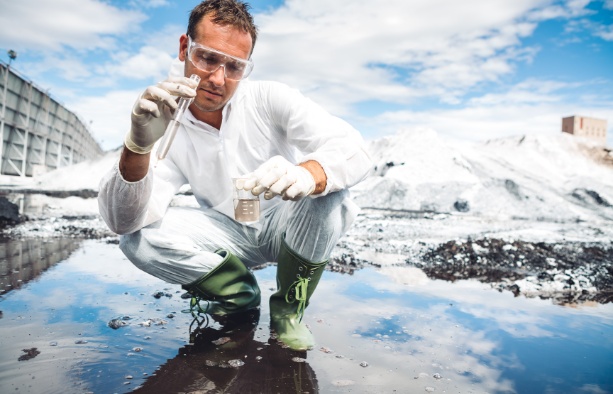Problem Solving Skills For Environmental Scientists

Environmental issues such as climate change, pollution, and biodiversity loss require urgent action from scientists and policymakers. To address these complex challenges, environmental scientists need strong problem-solving skills that enable them to analyze data, design solutions, and collaborate with stakeholders.
The problem-solving skills for environmental scientists include analytical skills, critical thinking, programming skills, creativity, adaptability, communication, and collaboration skills. Developing problem-solving skills is essential for students pursuing careers in environmental science.
This article will provide a guide for problem solving skills for environmental scientists. We will also explore key concepts, technical skills, interpersonal skills, and field experiences that can help students become effective problem-solvers in the environmental science field.
Key Concepts In Environmental Science And Their Relevance To Problem-Solving For Environmental Scientists
Environmental science is a multidisciplinary field that draws upon knowledge from biology, chemistry, physics, geology, and social sciences. Key concepts such as biodiversity, ecosystem services, and sustainability are essential for understanding and addressing environmental issues.
- Biodiversity: It is the variety of life on Earth and the importance of preserving it for the health of ecosystems and human societies
- Ecosystem Services: Ecosystem services are the benefits that ecosystems provide to humans, such as clean air and water, food, and recreation
- Sustainability: It is the ability of ecosystems and human societies to meet the needs of the present without compromising the ability of future generations to meet their own needs
The Importance Of Interdisciplinary Perspectives For Environmental Scientists
Solving environmental problems requires a collaborative effort among experts from different fields. Interdisciplinary perspectives enable scientists to consider the complex interactions between natural and human systems.
- Coupled Human-Natural Systems: The interdependent relationships between human societies and natural ecosystems
- Social-Ecological Systems: It is the interactions between social systems and the environment
Natural And Human Systems For Environmental Scientists
Environmental issues arise from the interactions between natural and human systems. Understanding these systems and their dynamics is crucial for developing effective solutions.
- Natural systems are the natural environment’s physical, chemical, and biological processes.
- Human activities and systems are how human societies impact and interact with the natural environment.
- Environmental issues are problems such as climate change, pollution, and habitat loss that result from the interactions between natural and human systems.
Problem Solving Skills For Environmental Scientists
Problem-solving skills are essential for environmental scientists who work to address environmental issues and promote sustainability. These skills include analytical skills, interpersonal skills, leadership skills, and programming skills.
Environmental science programs and courses often provide students with knowledge and perspectives on the natural environment, human activities, and their impact on ecosystems and biological systems. Students also gain practical experiences through field trips, field studies, and projects.
Importance Of Developing Analytical And Technical Skills For Environmental Scientists
Data collection is a critical component of environmental science research, and environmental scientists must be skilled in collecting, organizing, and analyzing data to draw meaningful conclusions. Some data collection and analysis strategies include using various tools, such as field sampling equipment and remote sensing technologies, and utilizing statistical analysis techniques to identify patterns and trends in data.
Geographic Information Systems (GIS) is a powerful tool for environmental scientists to create maps and analyze spatial data. GIS allows environmental scientists to visualize complex relationships between environmental factors and create models to predict future environmental changes. GIS skills are essential for environmental scientists working in fields such as ecology, conservation, and natural resource management.
Programming languages and software are essential for environmental scientists to manage, analyze, and visualize large datasets. Some popular programming languages and software programs used in environmental science include R, Python, MATLAB, and ArcGIS. These tools allow environmental scientists to automate data analysis, develop complex models, and create interactive visualizations.
Enhancing Interpersonal And Leadership Skills For Environmental Scientists
Developing strong interpersonal and leadership skills is essential for environmental scientists as they work with various stakeholders, such as policymakers, community groups, and other professionals. Effective communication, collaboration, project management, and leadership development are critical skills for success in this field.
Environmental scientists must work in teams, manage projects effectively, and communicate their findings to stakeholders with different backgrounds and perspectives. Courses and environmental science and studies programs offer students opportunities to develop these skills through experiential learning, service learning, and hands-on learning activities.
By enhancing their interpersonal and leadership skills, environmental scientists effectively collaborate and lead teams to address complex environmental issues and promote sustainable solutions.
Also Read: Why Is Science So Hard?
Field Experiences And Experiential Learning For Environmental Scientists
Field experiences and experiential learning are important in environmental science education as they provide students with practical skills and real-world problem-solving experience. These experiences include field trips, internships, and volunteer work, which expose students to various environmental issues and challenges.
During field trips, students explore natural environments, observe and identify species, and conduct experiments. These experiences allow students to learn about the natural world and understand the ecological processes that drive it.
Internships and volunteer work allow students to work with environmental professionals and organizations, gaining real-world experience and developing essential skills in the field. These experiences also help students network and create important professional connections that benefit them in their future careers.
Environmental Science Programs And Courses For Environmental Scientists
Environmental science degree programs and courses typically cover various topics related to the natural environment, human impacts on the environment, and managing natural resources. Courses in environmental science programs include the following:
- Environmental chemistry
- Ecology
- Atmospheric science
- Geology
- Climate change
- Environmental policy
- Sustainable development
- Environmental ethics
In addition to these core courses, students have the opportunity to choose elective courses in specialized areas such as environmental biology, environmental economics, environmental law, or environmental management. Many programs also offer opportunities for field experiences, internships, or research projects.
Choosing Courses And Programs That Align With Career Goals For Environmental Scientists
When choosing courses and programs in environmental science, it’s essential to consider your career goals and interests. Some careers, such as environmental law or policy, require a more interdisciplinary approach and a broader range of coursework.
Other careers, such as environmental consulting or management, require more specialized knowledge in areas such as ecology or environmental chemistry. It’s also important to consider the degree level you seek, as environmental science programs are available at the undergraduate and graduate levels.
Emerging Technologies And Trends In Environmental Science
In recent years, emerging technologies and innovative trends have revolutionized the field of environmental science, paving the way for new and exciting opportunities for research and problem-solving.
- Artificial intelligence and machine learning for analyzing large datasets and identifying patterns and trends.
- Remote sensing technologies such as drones and satellites for mapping and monitoring the environment.
- Bioremediation techniques for cleaning up contaminated sites using natural processes.
- Renewable energy sources such as solar and wind power reduce dependence on fossil fuels.
- Sustainable agriculture techniques such as precision farming and vertical farming increase efficiency and reduce environmental impact.
- Climate modeling and forecasting to better understand and prepare for the impacts of climate change.
- Circular economy practices to reduce waste and promote the reuse of materials.
- Green infrastructure, such as green roofs and rain gardens, to manage stormwater and improve air quality.
- Blockchain technology for tracking and verifying sustainable supply chains.
- Citizen science and crowdsourcing to engage the public in environmental monitoring and research.
Conclusion
Developing problem-solving skills is essential for environmental scientists to address our planet’s complex and pressing environmental issues. This article has provided an overview of the importance of problem solving skills for environmental scientists, including analytical, interpersonal, and leadership skills, and their relevance in environmental science.
Through practical experiences such as internships, field trips, and volunteer work, students can develop their problem-solving skills and gain real-world problem-solving experience. Choosing courses and degree programs that align with career goals and emerging trends in environmental science helps students stay competitive in the job market.
By enhancing their problem-solving skills, environmental scientists can better understand and address the challenges posed by human activities in the natural environment. The benefits of such skills go beyond just the scientific realm but also help create a more sustainable future for our planet.



